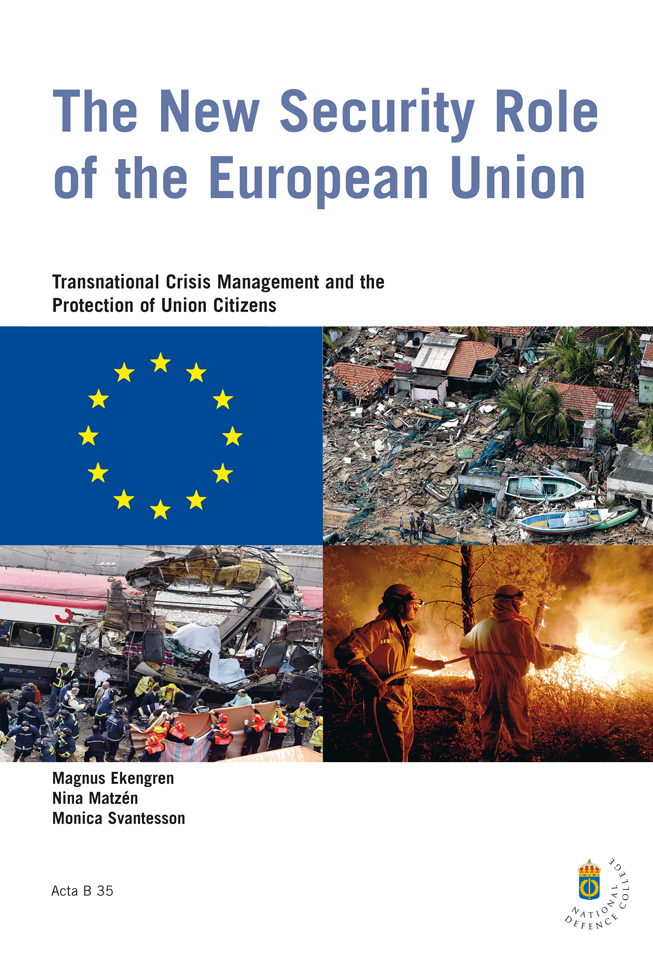The New Security Role of the European Union
90 kr
Tillgänglighet: 21 i lager
In the last few years the European Union (EU) has given assistance to those affected by the Asian tsunami, supported American authorities during the Katrina disaster, coordinated water-carrying aircraft to fight forest fires in Southern Europe, and taken measures to prevent the further spread of avian influenza and to respond to the challenges of international terrorism. The necessities of transnational crisis management in a globalised world are compelling the EU to take on a new, proactive security responsibility. Through new policies such as the Solidarity Clause and emergency preparedness measures, the Union is strengthening its focus on human and societal security, and the protection and safety of its citizens. The great challenge is to create crisis management capacities based on clear objectives and a strategic relationship between the Union institutions and EU member states. This report examines the opportunities and constraints for the creation of an effective EU capacity. The analysis is based on detailed case studies of EU action in the Moscow theatre hostage crisis (2002), the forest fires in Portugal (2003), the terrorist bombings in Madrid (2004) and the Asian tsunami disaster (2004). The report explains how the Union sets the objectives for its involvement. It provides a unique overview of the decisions and measures taken within the EU institutions – on an hour by hour basis – in areas such as civil protection, humanitarian aid and consular cooperation. The evaluation of the Union’s performance includes assessments of the EU added value for national crisis management capacities.
Utgivningsår: 2006
ISBN: 91-85401-34-X
ISSN: 1402-7593
Format: Mjuk pärm
Sidomfång: 187
Artikelnummer: FHS-06052
Serie: Försvarshögskolans acta. B
Nummerserie: 35
Serie 2: Swedish National Defence College acta. B
